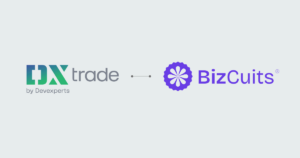What exactly does CySec know about MiFID II? It’s as clear as mud
This week, from Limassol, FinanceFeeds will report on CySec’s actual stance with regard to the forthcoming MiFID II regulations, and whether the regulator genuinely is prepared to elevate itself and ensure that its responsibilities to the companies over which it presides are fulfilled.

With a global reputation that is dichotomous, the non-bank financial markets regulatory authority CySec has on one hand the task and status of being the only entity of its type in the world which is responsible for overseeing over 150 retail FX firms in a small nation where retail FX forms one of the largest industry sectors in the country, and on the other hand is viewed as a small, ‘folksy’ club from which membership is the easy way for firms from all over the world to be recognized as somehow ‘European’.
These two diverse viewpoints have held CySec to a high level of scrutiny in that CySec’s main remit, unlike other non-bank regulators in areas which have a substantial retail FX industry such as Britain and Australia, is to work closely with retail FX firms, whereas ASIC and the FCA have large mortgage lenders, insurance companies, financial advisers, wealth managers and hedge funds to mandate, viewing the massive domestic retail FX industry in those financial centers to be just one component, even though just a few British retail FX firms conduct far more business than 150 CySec regulated firms collectively.

The commonly held opinion therefore is that CySec has many attractions for smaller retail firms in that the company does not have to be Cypriot by origin or have its main operations in Cyprus, and that CySec is European Union based financial regulator which therefore operated under the scope of MiFID and will soon be subject to MiFID II, thus giving brokerages a clear marketing advantage over those in unregulated offshore jurisdictions as the seed of customer protection can be sewn in the minds of direct customers and partners.
Is it just a placebo?
MiFID II is a very lengthy and extensive directive which covers the entire infrastructural requirements and reporting duties that all electronic trading fims will have to adhere to from January 2018, which is only two months away.
Given its proximity, very little has been directed from the officials in Nicosia thus far.
There are currently several conflicts of interest between regulated firms in Cyprus and the European Securities and Markets Authority (ESMA) which authored the MiFID II rulings, and comment from CySec on how firms under its remit should now take the appropriate action has been notable by its complete absence.
In May this year, Point Nine, a regulatory reporting technology company based in the heart of Limassol’s retail trading heartlands, held a seminar on how companies should prepare for MiFID II, which was extremely detailed and concise, but under-attended and still was not reiterated by a directive from CySec on how to carry out the good advice given by Point Nine.
Unregulated business exists everywhere with or without MiFID directive. MiFID only applies to registered entities in Europe, therefore it will never touch any entity of any firm that is located outside the European Union and is onboarding clients in Vanuatu or Belize” says Andreas Roussos of Point Nine
Mr Roussos is absolutely right indeed.
Many firms in Cyprus maintain an office with CySec licensing, which is responsible for just a few clients so that in the case of an audit, the entire operations appear compliant, however many firms which operate under this method ensure that their main traffic is directed to their .com site which is where they onboard clients to an offshore entity, and then have a .com.cy site which onboards clients to the CySec entity.
In such cases, of course the vast majority of clients are onboarded to the offshore entity and in some cases are then subjected to leverage ratios that are steeper than residential streets in Dunedin, New Zealand and whose trades are executed outside of the ‘best execution’ practices stipulated by MiFID II. CySec mandates 1:50 leverage ratio for FX and CFDs to CySec regulated firms, however a glance at some of the terms offered by firms that exceed in some cases 1:1000 demonstrates this clearly.
Thus, a firm can pretty much do what it wants to clients, and still appear MiFID II compliant. This is a matter on which CySec has not provided any comment or directive, even during the diatribe that was unleashed on senior FX brokerage executives by CySec Chairman Demetra Kalogerou, exclusively documented by FinanceFeeds, in which she lambasted every attendee from a first-person perspective.
Speaking to many industry executives from the larger companies in Cyprus, this episode was neither constructive, nor did it provide any detail on how firms should prepare for MiFID II.
Since then, several regulatory forums have been held by various niche experts that provide regulatory reporting technology have been held, as the onus has become upon these firms to impart detail, due to an absence of information from the regulators themselves.
Cyprus as an ‘aircraft carrier’ for foreign firms to operate European Union based offices with the full strength of MiFID regulation has created much concern, largely stemming from the inability for CySec to have jurisdiction over the main operations of such companies.
Indeed, FinanceFeeds hosted a MiFID II breakfast symposium in July this year in London at which executives across the spectrum of the FX industry from technology partners to institutional liquidity providers gained detailed information, which is important when providing their services to brokerages in Cyprus.
This week, from Limassol, FinanceFeeds will report on CySec’s actual stance with regard to the forthcoming MiFID II regulations, and whether the regulator genuinely is prepared to elevate itself and ensure that its responsibilities to the companies over which it presides are fulfilled.









